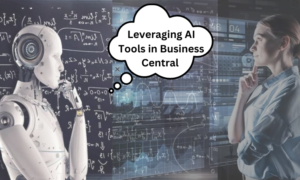
There is a plethora of challenges that prevail in the current global economy for the healthcare industry: pandemic, mental health issues, the aging population, to chronic disease. There is a massive demand for quality care, but the healthcare industry is already struggling with challenges. Healthcare professionals are looking for innovative solutions to help them save time and effort to provide quality healthcare services to more people. Generative AI emerged as the transformative solution to revolutionize the healthcare industry. There are plenty of opportunities for healthcare professionals to leverage generative AI technology to shape the healthcare industry’s future.
40% of working hours of the individuals across all industries could be impacted by LLMs – Accenture.
What is Generative AI?
What makes generative AI technology so powerful is the combination of various AI technologies such as LLM, machine learning, and process automation. It helps enterprises generate a wide range of audio, videos, text, image, and 3D content. It has a major impact on four areas of business: Marketing & Sales, customer operations, research & development, and software engineering. In healthcare, generative AI holds the potential to enhance productivity and automate the manual process. There are some healthcare-specific language models developed – BioGPT, GatorTron, and Med-PaLM to help professionals to get more accurate responses to their healthcare-related queries.
Let’s understand more about this technology by exploring top use cases of generative AI in the healthcare industry.
Drug discovery
Usually, medication development takes a long course of time due to lengthy drug discovery procedures. Generative AI can help professionals to expedite the processes. How? Generative AI can help generate new molecules by learning and analysing a large dataset of chemical structures. Further, scientists can test these molecules in the lab to check the potential of the molecules as a new drug. Another critical step in boosting the drug discovery process is developing virtual compounds. Generative AI algorithms can create virtual compounds and evaluate them in silico, a laboratory simulation.
Diagnose the diseases
With the help of generative AI, healthcare professionals can diagnose diseases by analysing vast datasets of medical images such as CT scans, X-rays, and MRIs. The AI algorithm can identify the different patterns on the images linked to specific diseases.
Chatbots
Chatbots can be the best way to provide personalized medical recommendations and answers to various medical queries generated by patients. There are multiple chatbots developed by healthcare organizations where it asks about the symptoms of the patients and provide personalized medical advice.
Patient care
The algorithm trained to evaluate medical history of the patients, lifestyle choices and more information shared to create a customized care plan. It enhances the capability of the doctors to predict the outcomes. Based on the large datasets analysis, generative AI identify the patterns related to particular outcomes and helps healthcare professionals to make informed decisions.
Medical imaging
One of the critical elements in the healthcare industry to provide better healthcare services is medical imaging: PET scans, CT scans, MRIs, and X-rays. With the help of generative ai, the process can be augmented to swiftly pinpoint the injuries. Plus, it can also help in reducing image Noise. Along with machine learning, it can shorten the scan process times. Faster healthcare is very much required to help patients; generative AI has the potential to augment healthcare service delivery.
Medical Research
Generative AI helps scientists to augment medical research. Scientists can use large datasets in the algorithms, which helps in finding the patterns related to the particular study out of the ingested data. It further helps the researchers to come up with new theories and research questions. Generative AI can also help researchers in getting new pharmacological targets to chase.
Ethical Concerns and Challenges Associated with Generative AI
The healthcare industry can leverage the generative AI potential in automating and streamlining healthcare processes. However, some ethical concerns and challenges need to be addressed.
- The content generated from generative AI can be challenging to interpret and understand. The problem in interpreting the generated content will impact the healthcare decision-making process.
- Gathering large datasets for ingesting in generative AI models for training may be a challenging task that limits the effectiveness of the outcome of the healthcare areas.
- Generative AI generated content lacks the advantage of actual ownership of the content and can be plagiarism in some cases.
- In some cases, people can utilize generative AI to create fake and synthetic news articles causing societal chaos.
Conclusion
The above-mentioned use cases of generative AI are some examples. Generative AI holds a huge potential to revolutionize the healthcare industry. Starting from simple chatbots to solve patients’ queries and offering personalized recommendations, there is a lot yet to be explored. The healthcare industry is gradually adopting various generative AI applications to boost the healthcare delivery process to cater to more patients. Providing quality healthcare service to all people at the right time is the mission that healthcare professionals are trying to achieve with the help of generative AI.
Generative AI has an impact on other industries as well. Enterprises across industries are harnessing the power of generative AI technology to open up new business opportunities in the market and enhance customer experience. If you want to create the best use case for your organization, join our exclusive generative AI workshop, InnovAIte. We have designed a 5-days sprint model enabling enterprises to quickly validate their ideas using generative AI and decide whether it is an effective solution for the business. We aim to democratize AI for enterprises across industries. We provide tools and expertise to all mid-market enterprises to thrive in this digital era and avail competitive advantage. The power of AI is for everyone, and we are helping enterprises to explore the real potential of AI technology based on their business needs.






